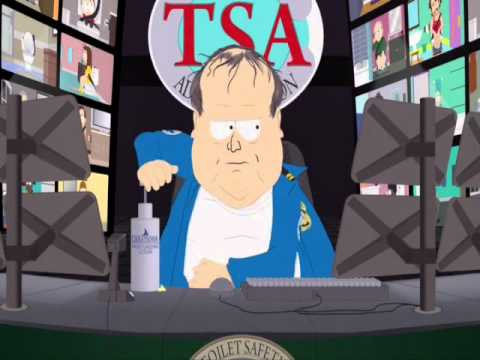The Transportation Security Administration (TSA) will expand its facial recognition program to around 430 US airports over the next several years following what it calls “extremely promising” results in its pilot program, according to Fast Company. The agency reportedly said its program yielded 97% effective results across all demographics, including those with dark skin. The program is currently in use in 25 airports.

As pointed out in Fast Company’s story, a 97% effectiveness rate across more than two million airline passengers per day means that, for over 60,000 of those people, the biometrics won’t work properly if it’s used in every airport in the country.
At the moment, the pilot program is officially voluntary. It uses 1:1 matching — that is, it compares your face in the moment against your government-issued ID like a driver’s license or a passport. The TSA says that data is immediately overwritten when the next passenger moves up, and that at the end of the day, no images are saved.
The TSA is also running a separate pilot at two of its airports that instead compares a traveler’s image against a government database. Only “trusted travelers” such as those enrolled in TSA PreCheck are included in this pilot.
The Electronic Privacy Information Center (EPIC) says there are reasons to be concerned about facial recognition software being used by government agencies that go beyond its efficacy among different demographic groups. EPIC says the US has no overarching laws when it comes to its use of facial recognition tech, putting travelers’ civil rights and privacy at risk.
Eventually, the TSA would like biometric recognition to be mandatory. During a South by Southwest (SXSW) fireside chat earlier this year, TSA Administrator David Pekoske said it would eventually be required across the board, citing effectiveness and efficiency. He also said “in our own testing, we show no statistically-significant variation across demographic groups,” going on to say the TSA wants to be as transparent as it can about the program. However, the agency told Fast Company it will not release the results of its two years pilot testing publicly.
During the SXSW talk, when Dallas Morning News reporter Kyle Arnold asked if anyone directed the TSA to initiate this program, Pekoske said it was a self-directed initiative.
In February, a group of US Senators wrote a letter to Pekoske asking for an immediate halt of facial recognition tech use in airports. The letter points to a 2019 National Institute of Standards and Technology study that found that facial recognition is up to 100 times more likely to improperly identify those of Asian and African descent.
Few things make me as uncomfortable as the idea of the bumblefucks at the TSA having my biometric data
Good news! It’s a private company who will totally treat your data respectfully and secure it properly!
/s
Remember before 9/11 when you could meet your loved ones at the gate. Remember when TSA hardly existed.
Pepperidge farm remembers.
But seriously, travel sucks now, and there’s no reason for it.
Yeah not a fan of this. Especially with how facial recognition seems to struggle with non white faces. You should be able to opt out of it.
Opt out if this AND the XRAY, And they are going to cavity search both ends of your meat tube.
Great, a new way for the TSA to spend a few hundred million of our tax dollars on another thing no one asked for that will be a net negative to society.
At this point the TSA only exists to get us used to having our privacy invaded by the government.
deleted by creator
It’s somewhat fascinating how far behind the US is, technologically, compared to Europe.
Although there are some serious privacy concerns about this, the convenience for the end user is amazing. The EU has been using similar tech for us citizens for a while and getting across the border is almost as trivial as getting onto public transport. The time difference between crossing the EU border and the US border is insane, even with global entry.


